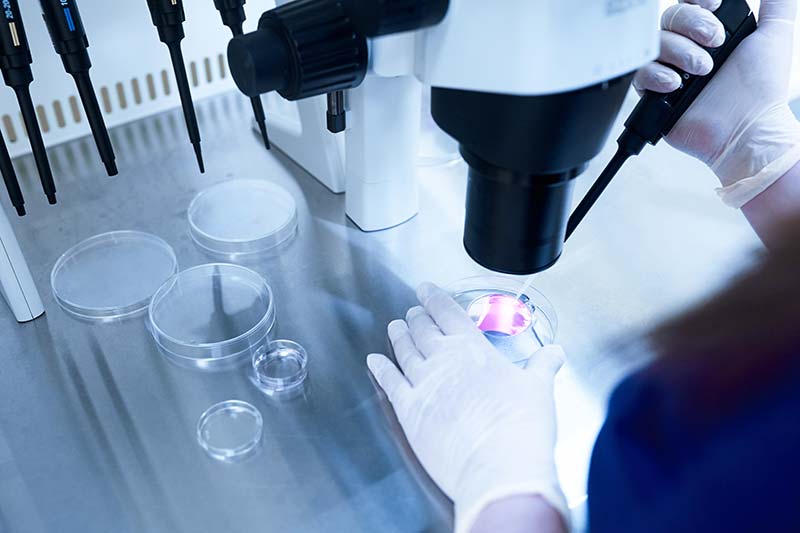Preimplantation Genetic Testing for Aneuploidy (PGT-A or PGS)
What is a PGTA?
Preimplantation Genetic Testing for Aneuploidy is a technique that is conducted on in-vitro fertilized embryos. The purpose of this process is to determine which embryos are chromosomally normal and which ones are not. This allows pregnancy rates to be improved and miscarriage rates reduced as compared to embryos that are not analyzed. PGT-A has been shown to elevate pregnancy success rates to as high as 70-80%.

Who Benefits the Most From PGT-A?
For those undergoing IVF, PGT-A is commonly used to improve the success of IVF.
Women 35 years of age or older
Women who have faced several miscarriages
Women who have gone through several failed IVF cycles
The 4-Step Process Of PGT-A
IVF
The process of PGT-A is performed as part of an IVF cycle. The embryos are created and then biopsied.
Biopsy
To carry out PGT-A, some cells are removed from the embryo. This is done only from the section of the embryo that develops into the placenta and has no effect on the part of embryonic cells responsible for forming a baby.
PGT-A
The biopsy is sent frozen to the analysis laboratory. The results are sent back to Revive Fertility Clinic identifying which embryos are chromosomally normal and which ones are not.
Transfer of Embryos
Only a single embryo with normal chromosomes will be selected for transfer to the uterus. Any other chromosomally normal embryos can be frozen and stored for use later.
